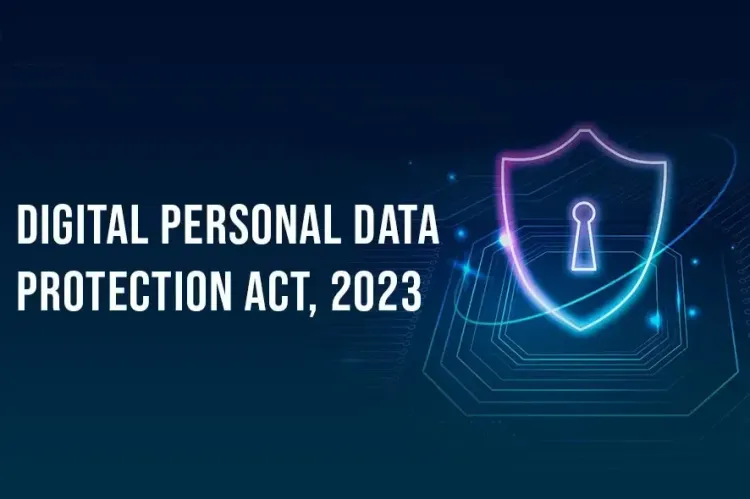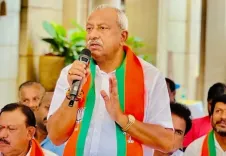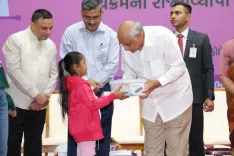IT Minister Vaishnaw References Supreme Court Verdict to Counter Jairam Ramesh on DPDP Act

Synopsis
Key Takeaways
- Ashwini Vaishnaw supports the DPDP Act.
- The act aligns with Puttaswamy case privacy principles.
- Emphasizes transparency in public life.
- Section 3 ensures public data availability.
- Aims to strengthen privacy rights and prevent misuse.
New Delhi, April 10 (NationPress) Union Electronics and Information Technology Minister Ashwini Vaishnaw on Thursday responded to Congress leader Jairam Ramesh, asserting that the Digital Personal Data Protection Act, 2023, aligns with the privacy principles established in the Supreme Court’s ruling in the Puttaswamy case and the principles of transparency outlined in the Right to Information Act (RTI).
In his correspondence to the IT Minister, Ramesh urged: "For the sake of transparency and accountability, I request you to pause, review, and repeal Section 44 (3) of the Data Protection Act, 2023, which undermines the RTI Act, 2005."
However, Vaishnaw countered in his letter that the Supreme Court’s Puttaswamy judgment confirmed that the Right to Privacy is a vital component of the Right to Life, which is a fundamental right safeguarded by Article 21 of the Constitution. The right to privacy is intricately connected to the safeguarding of personal information.
Throughout a comprehensive consultation process with civil society and various parliamentary discussions, the necessity for a balance between the right to information and the right to privacy was underscored, as noted in the IT Minister’s letter.
The DPDP Act, as passed by Parliament, addresses this balance while preserving the need for transparency in public matters, the letter affirms.
This is guaranteed through Section 3 of the DPDP Act, which states: "Subject to the provisions of this Act, it shall not apply to personal data that is made or caused to be made publicly available by …any other person who is under an obligation under any law for the time being in force in India to make such personal data publicly available."
As a result, any personal data that must be disclosed under legal obligations governed by various laws concerning our public representatives and welfare initiatives like MGNREGA will still be disclosed under the RTI Act. In fact, this amendment will not hinder the disclosure of personal data; instead, it aims to enhance individuals' privacy rights and avert possible misuse of the law, the IT Minister concluded.










